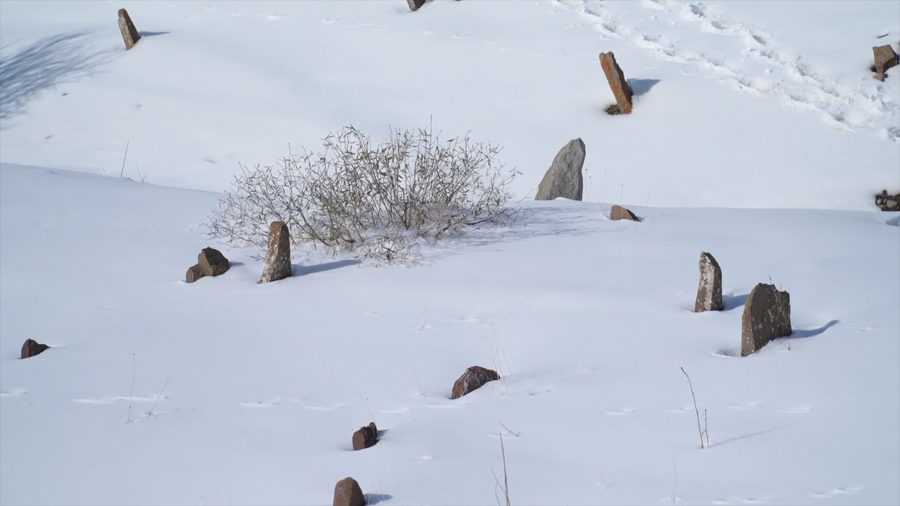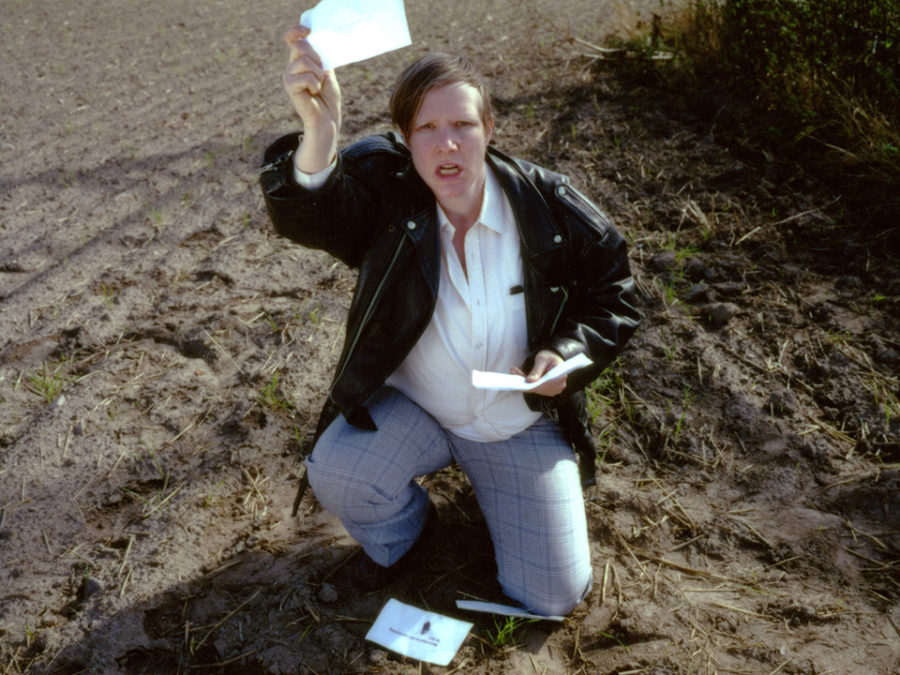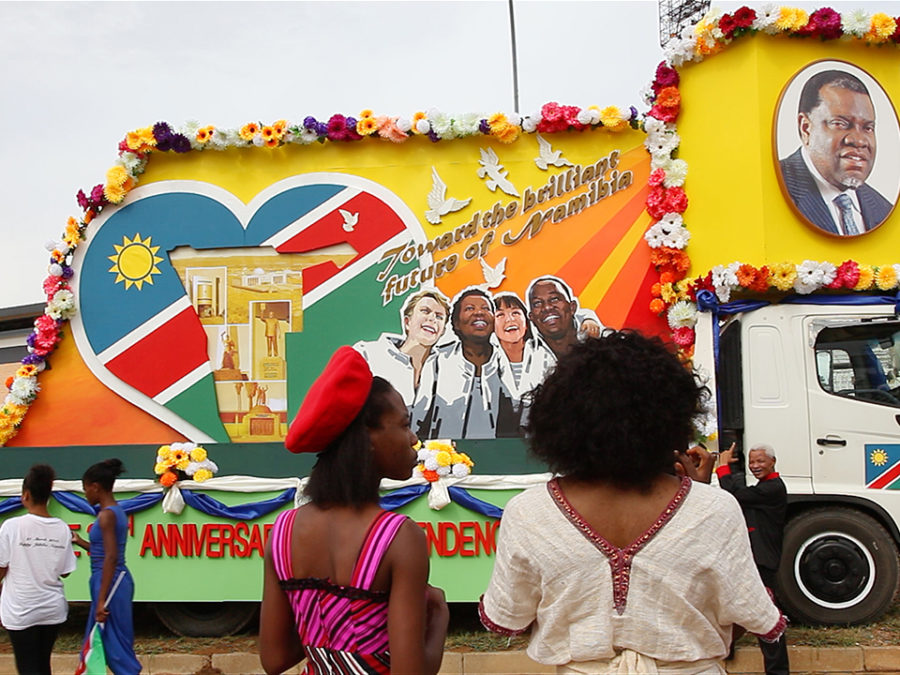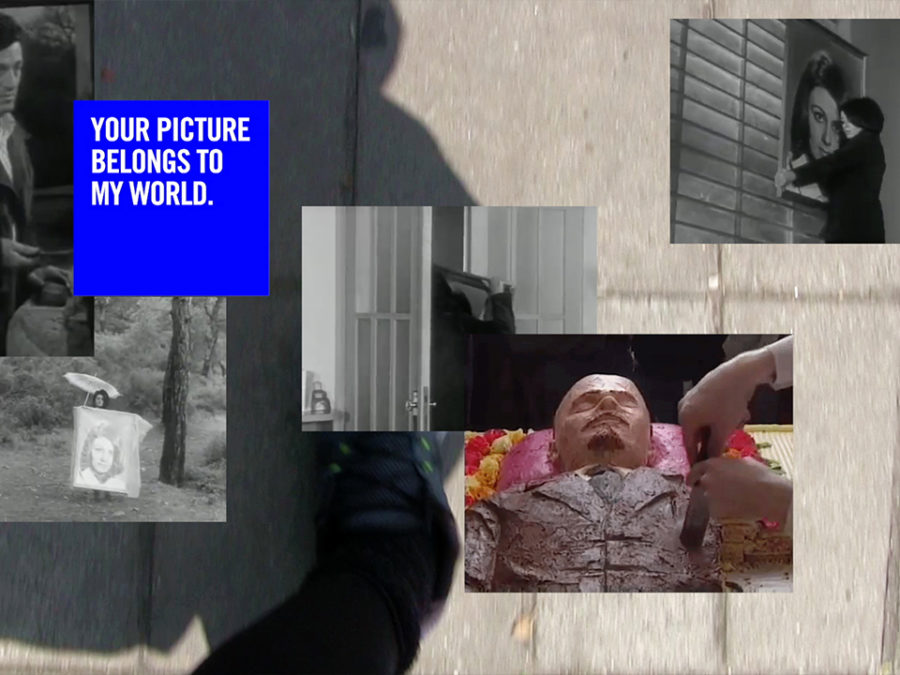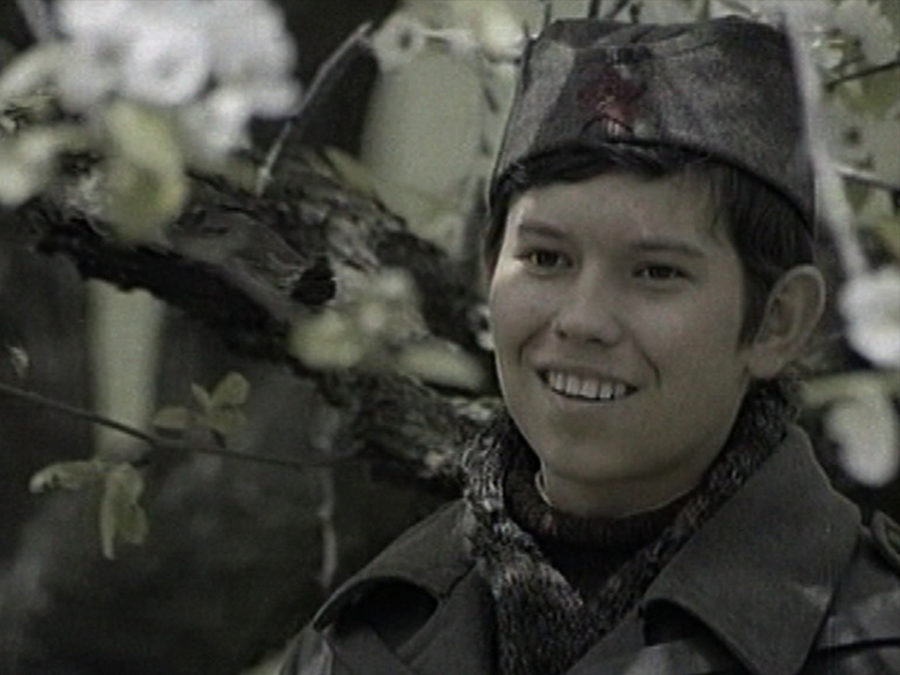“I don’t want the human to be in nature, as if nature is a container. … thinking isn’t the other of nature.” By drawing out encounters with the Kurdish autonomous movement in Northern Syria (Kurdistan) in the first part of the work Who Is Afraid of Ideology?, Marwa Arsanios continues her ongoing “research and reconsiderations of mid-twentieth century modernization ideas from a contemporary perspective, with a particular focus on gender dynamics, urbanism, industrialization,” and especially agriculture.*
This abstract (or maybe even dry) style is though not in contrast to the poetic images, loaded with knowledge: the dye-transfer prints of medicinal plants; trees providing wood for warmth and cooking. As such, it strives for a dialectical reading. Knowledge production does not take place in a void. No space is innocent. As a controlling and violent mechanism, the (welfare) state has constructed the idea of nature around modernist principles, whereby nature and people are divided entities, pitted against each other rather than being together. What has planted the seeds of this rupture is ceding the means of protection over to a state monopoly – a monopoly over soil, water, access to sources of healthy food, medical supplies, and collectivity.
Within the situation of hostilities and war in Syria, where the state has simultaneously collapsed and brutalized its violence, nature – the mountains and landscapes – once again offers protection. Embodied in women’s groups who became active within the Kurdish movement decades ago, autonomous, feminist ecological collectives approach this as an “unlearning of knowledge” in the midst of the war.
* In her eponymous text Who’s Afraid of Ideology? Ecofeminist Practices Between Internationalism and Globalism (e-flux Journal #93 – September 2018), the artist further elaborates on the mischief and complicity of NGO-ed feminist agendas of (self-)empowerment, deliberating on the development, economic independence, and women’s entrepreneurship within the logic of modernist and neoliberal exploitation of “everything and all.”
Marwa Arsanios is an artist, filmmaker, and researcher. She approaches research collaboratively and seeks to work across disciplines. Her solo exhibitions include the Beirut Art Center (2017); Hammer Museum, Los Angeles (2016); Witte de With Center for Contemporary Art, Rotterdam (2016).
